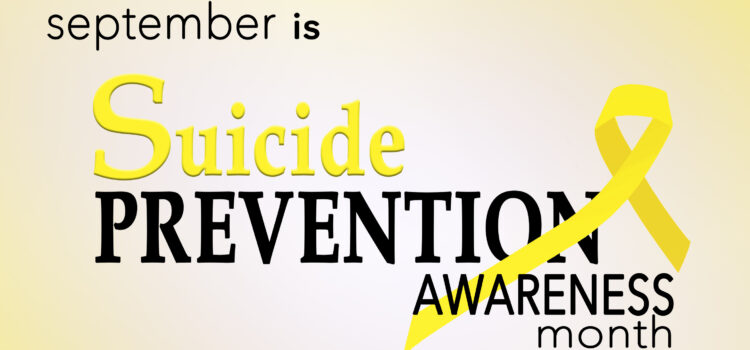
Ruby McNitch identifies as a survivor of suicide loss. Her son Christopher died by suicide when he was thirty years old. It was McNitch who found her son. There was no note and no explanation.
She said she asked herself questions like, “Did I say or do something wrong, could I have helped?” And, “Why didn’t they come to me?”
Following her son’s death, McNitch recalled having feelings of depression. This prompted her to reach out to Kern Behavioral Health, which is where she learned how to cope with her feelings. McNitch also began attending Kern BHRS support group meetings. At first she went to go listen, but soon opened up to share her own story.
“I learned that mental health issues — diagnosed or not — there is hope and help for them,” she said.
McNitch shared her story during Kern Behavioral Health and Recovery Services’ virtual community forum last week on World Suicide Prevention Day. This event raised awareness of Suicide Prevention Month.
She said she was able to not only survive, but thrive due to the assistance she received.
Ellen Eggert, another speaker at the forum, is a suicide survivor. She is a Kern BHRS employee, but was first a patient of theirs. She shared that she is a suicide-survivor and has her own struggles with mental illness.
“There is no shame and there is no reason anyone should hide it,” Eggert said.
Last month, a report released by the Center for Disease Control and Prevention found that during the week June 24–30, 2020, U.S. adults reported adverse mental health conditions associated with COVID-19. Forty percent of U.S. adults reported struggling with mental health or substance abuse, according to the CDC.
The study found specific groups, including younger adults, racial/ethnic minorities, essential workers, and unpaid adult caregivers, are most affected. The report says these groups have experienced disproportionately worse mental health outcomes, increased substance use, and even elevated suicidal ideation.
Eggert encourages everyone to become suicide aware and to not be afraid to talk about it. She discussed five steps, called “Be the One,” people can learn to take when working with someone who may be contemplating taking their own life.
The first step is to “Be the One to ASK.” Although Eggert says this is the hardest part, it is also the most crucial. She suggests asking, “Are you thinking about taking your life?”
The second step is to “Be the one to be THERE.” Showing compassion is important and can be done by saying, “I am here for you, tell me more,” she said.
The third step is to “Be the one to KEEP THEM SAFE.” Firearms are a leading suicide method and having a one is a home increases the risk. Having a conversation about what does not need to be in the house is important. according to Eggert.
The fourth step is “Be the one to connect them with RESOURCES.” Utilizing mental health services is crucial, and no one should go through these hard times alone.
Lastly, “Be the one to FOLLOW UP.” Eggert said this can be as simple as a text or call; however, Eggert said those are not sufficient enough because emotions cannot be best expressed through these outlets. She recommends Facetime or Zoom; perhaps even outside their home by a window.
You can review these steps and find more information by going to https://www.bethe1to.com/.
COVID-19 has increased mental health concerns greatly, according to the CDC. According to the June report, suicidal ideation was elevated — approximately twice as many respondents reported serious consideration of suicide in the previous 30 days than did adults in the United States in 2018, according to CDC’s study.
Both speakers said it is more crucial than ever to check on one other and to reach out for help.
If you or someone you know are feeling suicidal, please use the following hotlines:
● (800) 273-8255 …..1-800-273-TALK National Suicide Prevention Lifeline
● (877) 838-2838 …..1-877-Vet2Vet Veterans Peer Support Line
● (800) 784-2432 …..1-800-SUICIDA Spanish Speaking Suicide Hotline
● (877) 968-8454 …..1-877-YOUTHLINE Teen to Teen Peer Counseling Hotline
● (800) 472-3457 …..1-800-GRADHLP Grad Student Hotline
● (800) 773-6667 …..1-800-PPD-MOMS Postpartum Depression Hotline
● (866) 488-7386 Trevor Project Hotline, LGBTQ Youth Suicide Hotline
You can also visit https://www.kernbhrs.org/ for local resources.